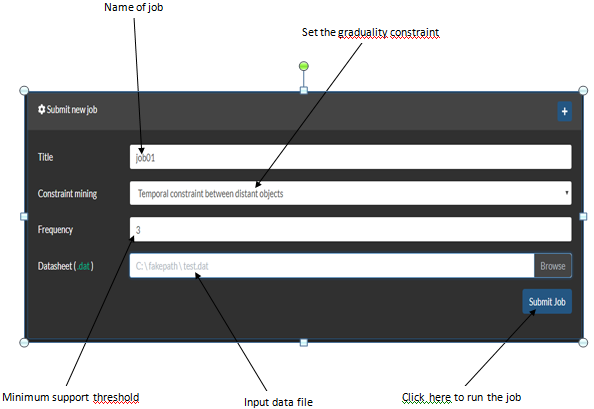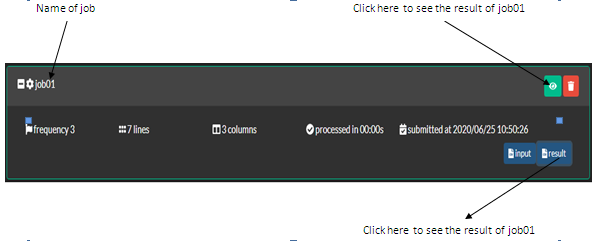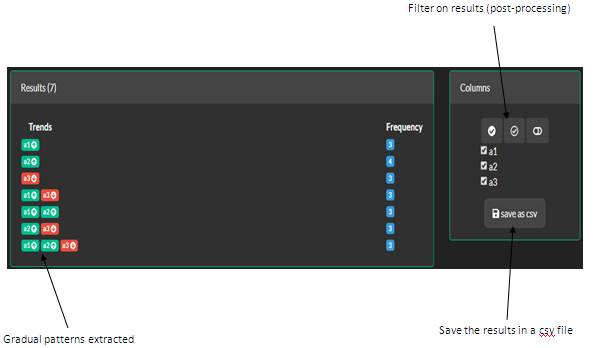
Tutorial
Mobipaleo is a tool that allows to extract frequent complex co-variations of the form "plus/minus a1, ..., plus/minus an"
between numerical attributes in a database.
These co-variations of attributes called "gradient patterns" play a key role in many
real-world applications where the volume of digital data to be managed is large, such as ecological, biological or medical data.
The Use of MOBI-PALEO
To use MOBI-PALEO, you must first register
before login.
Once logged in, you can submit a task via an available form.
Three parameters must be provided:
- Task name: the name of the task to be executed.
- Task file: your dataset.
- Task frequency: the minimum support (frequency) threshold.
Task file
The dataset must be a simple text file with the extension .dat. The number of lines represents the total number
of objects except for the first line which contains the names of the different attributes.
The other lines give the values of each object on each attribute.
Example
| a1 | a2 | a3 |
|---|---|---|
| 22 | 1200 | 4 |
| 24 | 2300 | 2 |
| 30 | 2700 | 3 |
| 28 | 3000 | 1 |
The task frequency
The support (frequency) of a pattern indicates how important (its weight) is in the dataset. It is advisable to indicate a weak support to avoid extracting only generalities, then reduce the number of patterns in post-processing by filtering on the results.
Output file
The result files (.csv) have the following format:
- Each line is a frequent gradual pattern. A gradual pattern is frequent if its frequency is greater than or equal to the minimum support threshold provided by the user.
- The frequency is displayed at the end of each line.
Example of a result file:
| a1+ | a2+ | 3 | |
| a1+ | a2+ | a3+ | 2 |
| a1+ | a2+ | a3- | 3 |
| a1+ | a2- | a3+ | 2 |
| a1+ | a3+ | 2 | |
| a1+ | a3- | 3 |
The pattern a1+ a2+ a3- indicates that
-
an increase in the values of attribute
a1comes with an increase in the values of attributea2and a decrease in the values of attributea3 -
a frequency of
3indicates that 3/4 of the objects in the dataset support this pattern.
Submit a job

Retrieve the results of a job

View, filter and save results
